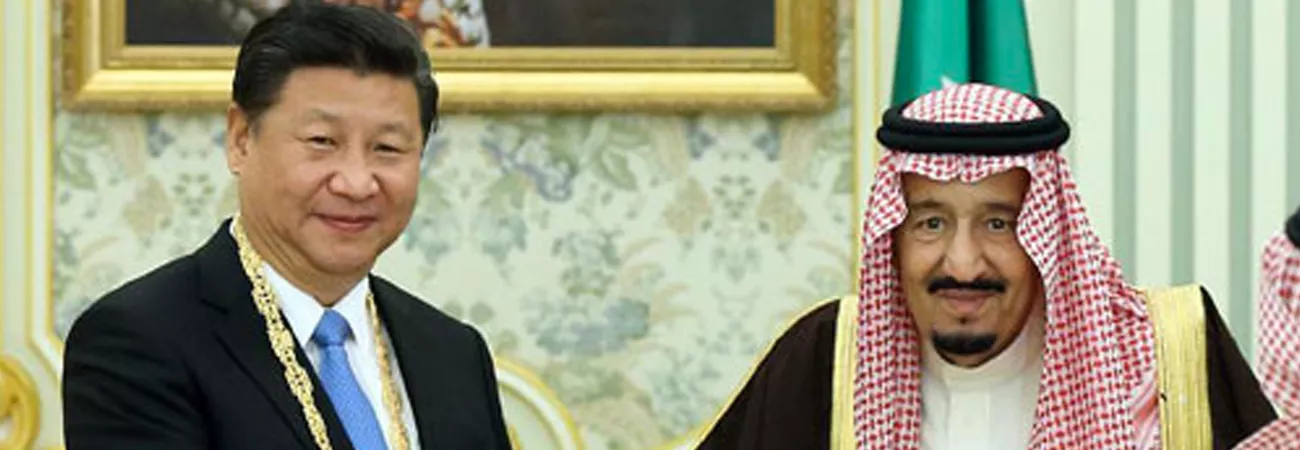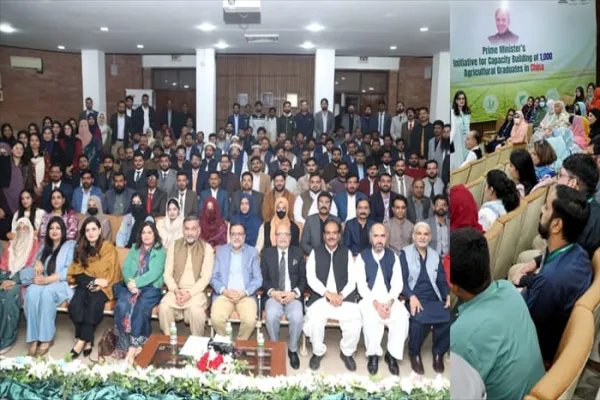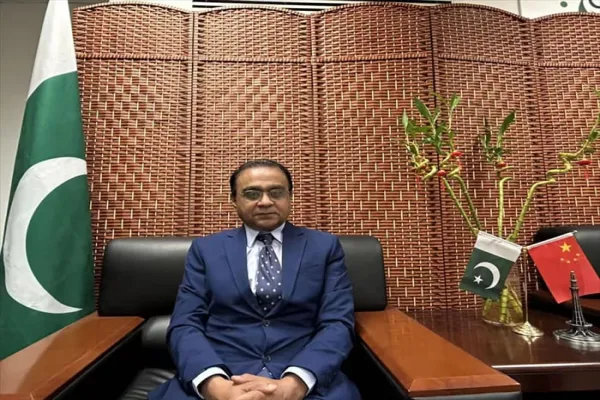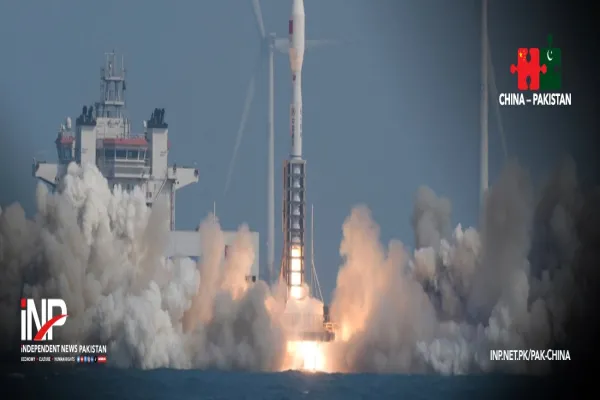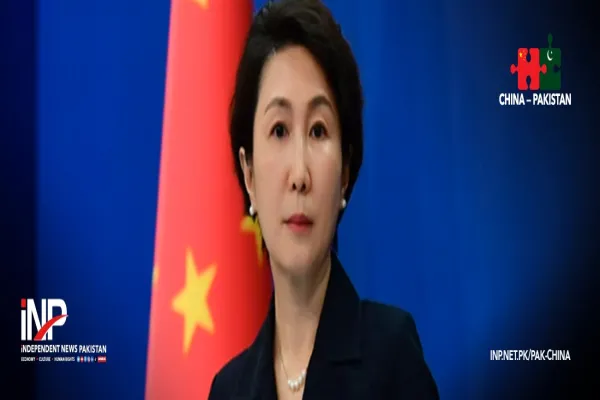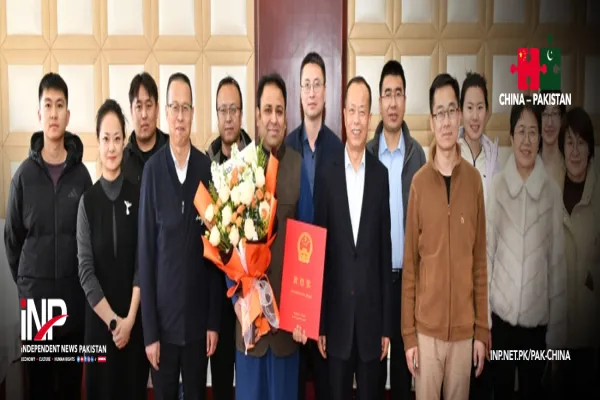i NEWS PAK-CHINA
Abhishek G Bhaya
Chinese President Xi Jinping's state visit to Saudi Arabia from December 7 to 10 is poised to set a new milestone for Beijing's relationship with the Arab world. During the four-day stay in the Saudi capital, the Chinese leader will attend the first-ever China-Arab States Summit and China-Gulf Cooperation Council (GCC) Summit, while holding bilateral talks with Saudi King Salman bin Abdulaziz Al Saud. The two high-powered multilateral summits would focus on strengthening trade ties and regional connectivity aligned with China's Belt and Road Initiative (BRI) while cooperating on energy security and digital technology at a time when the world is witnessing significant geopolitical and economic shifts.
The China-GCC Free Trade Agreement (FTA), on which the two sides have already held nine rounds of talks since 2004, is expected to be one of the top agenda at Xi's meeting with the leaders of six oil-rich GCC countries – Bahrain, Kuwait, Oman, Qatar, Saudi Arabia, and the United Arab Emirates (UAE). Xi's Riyadh visit followed the invitation from King Salman "to bolster historic ties and strategic partnership between the two countries," according to the kingdom's official Saudi Press Agency (SPA). This is Xi's third trip abroad since the COVID-19 outbreak and his first to Saudi Arabia since 2016. The SPA also reported that initial agreements worth $29.26 billion will be signed during the bilateral summit between Xi and Salman.
Saudi Arabia is the largest oil exporter in the world while China is the world's largest oil importer, as well as the largest importer of Saudi oil, buying over a quarter of the kingdom's oil exports. On December 1, just days ahead of the crucial visit, the Chinese Foreign Ministry released a report on "China-Arab Cooperation in the New Era" outlining a broad vision for the relations. The report highlighted that "China has all along viewed Arab states as strategic partners" and called for "building a community with a shared future between China and Arab states," reason that "this will benefit the peoples of both sides, contribute to solidarity and cooperation between developing countries, and help promote world peace and development."
China's constructive and positive role
This is a strong statement at a time when the United States' strategic presence is rapidly shrinking in the larger Arab world and, in contrast, China's positive and constructive role is gaining prominence in the region. Over the past decades, the two sides have stepped up their engagement across sectors. Xi's Saudi visit and outreach to the Arab world also comes as the ongoing Russia-Ukraine war puts pressure on the region's ties with the U.S. and other Western countries. While the U.S. has openly criticized the Saudi and OPEC+ decision to resist Washington's demand of cutting down oil prices to hurt Russia, China has, on record, appreciated Riyadh for pursuing an "independent energy policy."
China is also cooperating with Saudi Arabia to maintain stability in the oil markets. The two countries are reportedly in talks to settle oil deals in yuan, a crucial move that could denigrate the U.S. dollar as the default currency for oil trade in the long run. China accounted for 27 percent of Saudi Arabia's total crude oil exports in 2021. China continues to enhance ties with other Gulf states. In October, it signed a massive $60-billion deal with Qatar to purchase liquefied natural gas (LNG). Beijing has previously signed a space cooperation agreement with the UAE to send a probe to the moon.
Evolving and diversifying China-Arab ties
Beijing's relationship with the region is evolving and diversifying. China has emerged as a crucial partner for the Arab nations in a number of areas, including: infrastructure investment, trade in goods and services, digital technology, and defense. In recent decades, China has emerged among the top trading partners for all Arab countries including the GCC states, most notably Saudi Arabia and the UAE. In 2020, China replaced the European Union (EU) as the GCC's largest trading partner with bilateral trade touching $161.4 billion. Furthermore, the Gulf Arab bloc is a central pillar of China's Belt and Road Initiative (BRI) with the UAE and Saudi Arabia ranking second and third respectively as top destinations by volume for Chinese construction projects under the initiative. China is destined to play a significant role in the continued growth of the region's non-oil industries.
There's great synergy between China and Arab governments over anticipated development areas such as tourism, telecommunications, renewable energy, smart cities, artificial intelligence, and technology-oriented businesses. The Chinese presence is becoming more noticeable in the region's financial and educational sectors. Within the GCC, sovereign wealth funds are promoting closer ties: in 2015, a $10-billion UAE-China Joint Investment Fund was established by Mubadala in Abu Dhabi, China Development Bank Capital, and the Chinese State Administration of Foreign Exchange. In recent years, officials from the GCC sovereign wealth funds have focused more of their portfolios on Asian economies, especially China's. The range of diversified trade, investment and commercial engagements between China and the Gulf countries also provide the necessary foundation for a China-GCC FTA.
BRI and Digital Silk Road
The Arab countries' position on the China-proposed Belt and Road Initiative (BRI) has typically centered on regional partners, construction projects, and energy trade, in addition to being an essential transit channel for commerce in emerging countries. From the perspective of the Arab region, the BRI represents a crucial support connection for allies like Pakistan and Egypt. Through the BRI, China has been instrumental in the development of the Suez Canal Area Development Project in Egypt, as well as the Gwadar port and pipeline project as part of BRI's flagship China-Pakistan Economic Corridor (CPEC). Considering the current national digital plans in the Arab region, and particularly the GCC countries, the BRI's Digital Silk Road is very pertinent to the area.
The relatively young population in the GCC countries is steadily getting exposed to a growing Chinese technology presence, from social networking applications to digital payment platforms. Long before the COVID-19 pandemic broke out, the Arab countries began to see the intensification of technology-based cooperation to diversify their industries and build knowledge economies. In the years to come, tech cooperation on building digital infrastructure would remain prioritized between China and the Arab region. Given the already robust engagement between both sides, President Xi's presence at the two high-powered summits in Riyadh, in many ways, would mark a pinnacle for China-Arab ties and reinforce the belief on both sides that developing a peaceful and mutually beneficial cooperative relationship is important for both regional and global prosperity and security.
(If you want to contribute and have specific expertise, please contact us at opinions@cgtn.com. Follow @thouse_opinionson Twitter to discover the latest commentaries on CGTN Opinion section.)
Credit: Independent News Pakistan-INP


